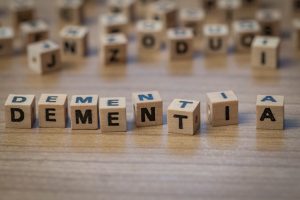 Mixed dementia is a condition that combines the symptoms of more than one type of dementia. The most common mixed dementia combination is of Alzheimer’s disease and vascular dementia. There is a lot about mixed dementia that is still not fully understood, such as whether treating one of the types of dementia in the combination will improve patient’s outcomes.
Mixed dementia is a condition that combines the symptoms of more than one type of dementia. The most common mixed dementia combination is of Alzheimer’s disease and vascular dementia. There is a lot about mixed dementia that is still not fully understood, such as whether treating one of the types of dementia in the combination will improve patient’s outcomes.
Alzheimer’s is the most common form of dementia, affecting close to 5.1 million Americans over the age of 65. To date, there is no definitive test to diagnose the condition in living patients. Although the progression of Alzheimer’s cannot be stopped or reversed, an accurate early diagnosis will help patients and their families plan for the future and seek symptomatic relief.
Advertisement
Vascular dementia is the second most common form of dementia after Alzheimer’s. Vascular dementia can be caused by a series of small strokes brought on by a number of factors:
- Blood flow to the brain has been interrupted due to stroke.
- Blood stops flowing to the brain for longer than a few seconds, the brain cannot receive oxygen, so brain cells start dying as a result.
- Silent strokes show no symptoms, so damage can be done without the patient realizing it.
- Large strokes can affect strength, sensation, and other parts of the nervous system, contributing to vascular dementia.
Other risk factors for vascular dementia include:
- Diabetes
- Hardening of the arteries
- High blood pressure
- Smoking
Vascular dementia can be further categorized into multi-infarct dementia and Binswanger’s disease.
Causes, prevalence, and symptoms of mixed dementia
The actual number of patients suffering from mixed dementia is hard to determine because the condition is often misdiagnosed. Autopsy results have found that mixed dementia is more common than believed.
In one study, mixed dementia was found in slightly over half of the total of 141 volunteers.
Although mixed dementia is not commonly discussed, researchers suggest giving this condition more attention because having two types of dementia all at once is far worse for the brain than just one.
Although the cause of mixed dementia is unclear, it is suggested that factors that contribute to Alzheimer’s disease, vascular dementia, and Lewy body dementia all play a role in the development of mixed dementia.
Symptoms depend on which part of the brain is affected. Symptoms of mixed dementia can be similar to those in Alzheimer’s disease or may be a mix of the symptoms associated with other types of dementia.
Treatment and diagnosis of mixed dementia
 There is no cure for mixed dementia – just as with other types of dementia – but treatments are available to help manage symptoms. Research is looking into lifestyle changes along with medical interventions as a means of treating mixed dementia for the time being. So far, lifestyle changes such as following a healthy diet, exercising regularly, managing blood pressure, blood sugar, and cholesterol, not smoking, and reducing alcohol intake can help reduce the risk of dementia as these are all associated risk factors.
There is no cure for mixed dementia – just as with other types of dementia – but treatments are available to help manage symptoms. Research is looking into lifestyle changes along with medical interventions as a means of treating mixed dementia for the time being. So far, lifestyle changes such as following a healthy diet, exercising regularly, managing blood pressure, blood sugar, and cholesterol, not smoking, and reducing alcohol intake can help reduce the risk of dementia as these are all associated risk factors.
Advertisement
There are no specific drugs to combat mixed dementia, but doctors may prescribe medications to curb symptoms related to Alzheimer’s.
Mixed dementia is commonly diagnosed through brain autopsy, so proper diagnosis often doesn’t come until after a person is passed. While a living patient may be diagnosed with one type of dementia like Alzheimer’s disease, it is not until after death that mixed dementia is confirmed.
More research into mixed dementia is required in order to develop better diagnostic and treatment options.
